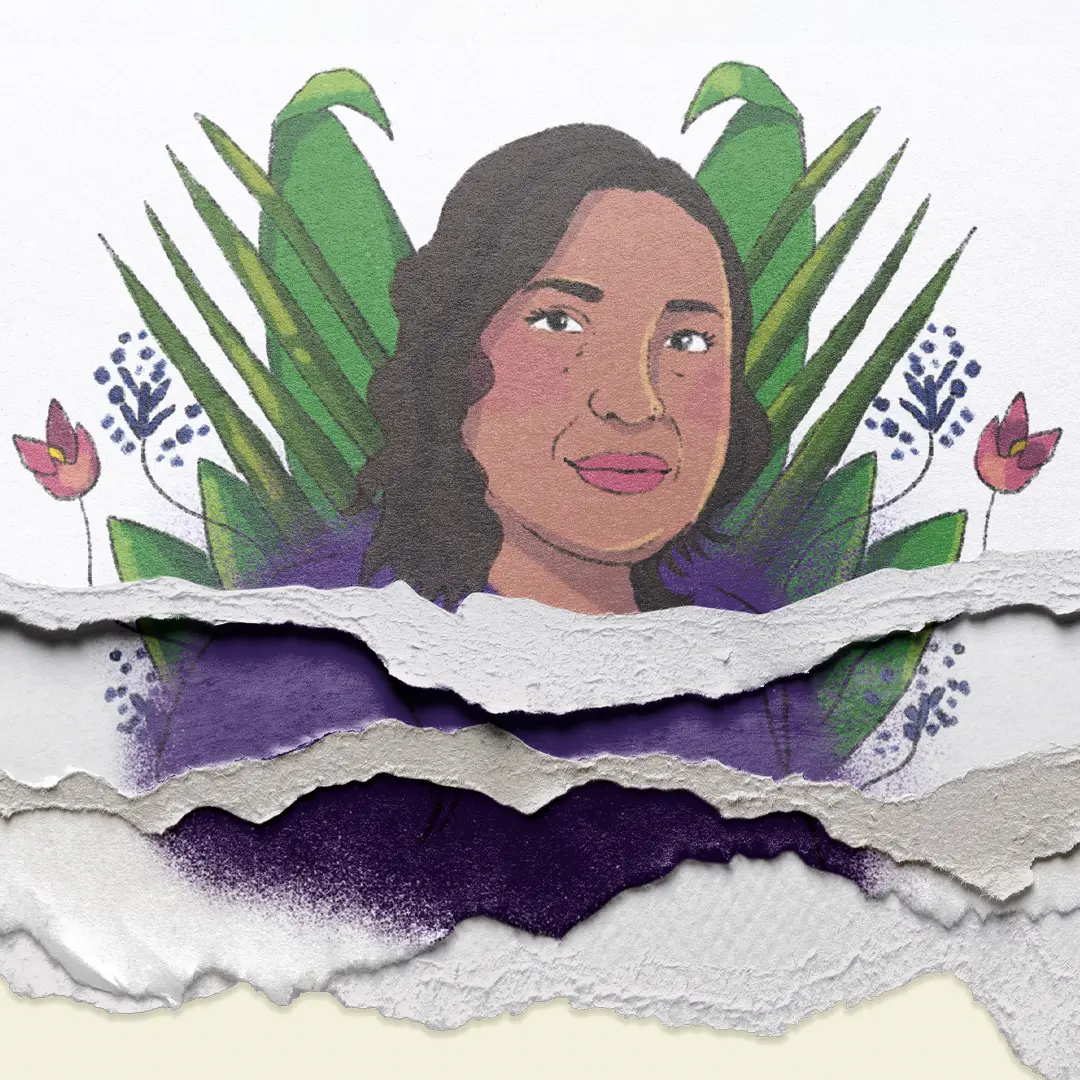Paula Urbina, maquila worker and secretary of the Board of Directors of the Honduran Women’s Collective CODEMUH.
Her name is Paula Urbina, and she is forty-two years old. More than twenty years ago, when she migrated from the countryside to the city with her sisters and brothers in search of better living conditions, she could not have imagined that she’d become an activist and leader in the movement for women’s labor rights or that she would serve on the Board of Directors of the Honduran Women’s Collective CODEMUH. Back then, it would have been unthinkable that she would achieve her dream of going to school and eventually enroll at university to become a lawyer. Soon, she will be able to represent workers in a different role. This is her story.
Many people find their purpose while going through adverse and painful situations. This was the case with Paula. When her health began to deteriorate in 2009, after eight years of working in factories, one of her colleagues told her about CODEMUH, an organization that accompanies and advises women workers. Paula decided to go.
It never occurred to her that this encounter would completely change her life. From the beginning she felt seen, supported, and held by the organization. At CODEMUH, she was told that she had the right to request a [relocation] assessment due to her health issues. The organization stood by her and provided her legal advice; they did not give up until she was victorious.
“The entire process was handled by CODEMUH; through them I requested my relocation assessment. When I got [it], they advised me to request a health assessment. These victories inspired me to keep fighting because I realized that there were many women workers in the same situation as me. This was the reason I made a commitment to the organization, to contribute part of my time to learning and supporting other colleagues within at factory,” says Paula. Having her illness officially recognized was one the most important moments of her struggle because the company acknowledged that women were indeed getting sick.
Another landmark moment for the the factory workers was the reinstatement of Lilian Castillo. After being fired because of her health problems, Castillo fought tirelessly and utilized every tool and space available to her so justice could be served. Her comrades stood by her and were present throughout the process. They protested outside the factory and demanded her reinstatement. Had she been on her own as opposed to being part of an organized collective, it would have been impossible for Lilian to achieve her reinstatement. “It was like fighting against a hydra,” but because they organized and had the support of CODEMUH and other actors, their struggle paid off.
CODEMUH is a pacesetter not only for workers but also for companies, government authorities, and the media. When CODEMUH women participate in meetings with government officials, journalists, or other actors, they are rightfully seen as self-assured and empowered. Their contributions and expertise are acknowledged by other stakeholders who are often unaware of the serious rights violations that are prevalent in sectors such as the maquila industry.
“An empowered worker, a woman, and a leader also reshapes the way she relates [to the world]. I was able to see a different world, and I have helped other women see it as well,” says Paula.

